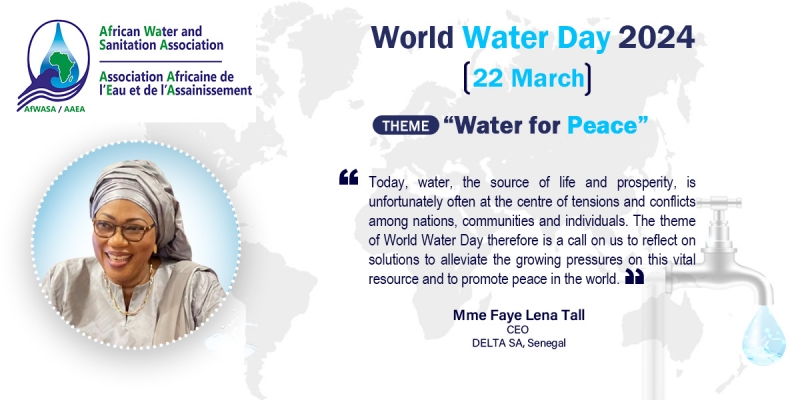Today, water, the source of life and prosperity, is unfortunately often at the centre of tensions and conflicts among nations, communities and individuals. The theme of World Water Day therefore is a call on us to reflect on solutions to alleviate the growing pressures on this vital resource and to promote peace in the world. This reflection will lead us to explore various strategic points aimed at preventing water-related conflicts and promoting more equitable and sustainable management of this crucial resource for humanity.
-
A few points to help prevent water-related conflicts
-
Invite cross-border countries to conclude cooperation agreements on the shared management of water resources. According to a UN report, only 24 countries have concluded cooperation agreements for all their shared water resources.
-
Establish dialogue and diplomacy: That means encouraging dialogue between the stakeholders concerned, including governments, international organisations, NGOs and local communities, in order to resolve water-related conflicts through diplomacy and mediation.
-
Integrated water resources management: Adopting an integrated approach to water management, taking into account social, economic, environmental and political aspects in order to prevent tensions linked to water scarcity or poor water management. By way of illustration, we can cite the report on the MDGs 2022, where around two billion people do not have access to drinking water, which may be due to poor water management.
A few points to promote a more equitable and sustainable management of water resources
-
Conservation and protection of aquatic ecosystems: protecting aquatic ecosystems such as rivers, lakes and wetlands, which provide vital ecosystem services such as water purification and flow regulation, thereby contributing to the sustainability of water resources.
-
Protecting human rights to water and sanitation: guaranteeing universal access to drinking water and adequate sanitation by recognising water as a fundamental human right, in order to reduce inequalities and ensure security for all.
-
Limiting global warming: with the aim of reducing the increase in water stress, particularly water shortages.
By implementing these various strategic points, we can make progress towards more equitable, sustainable and peaceful management of water resources worldwide.

 English
English  Français
Français 
